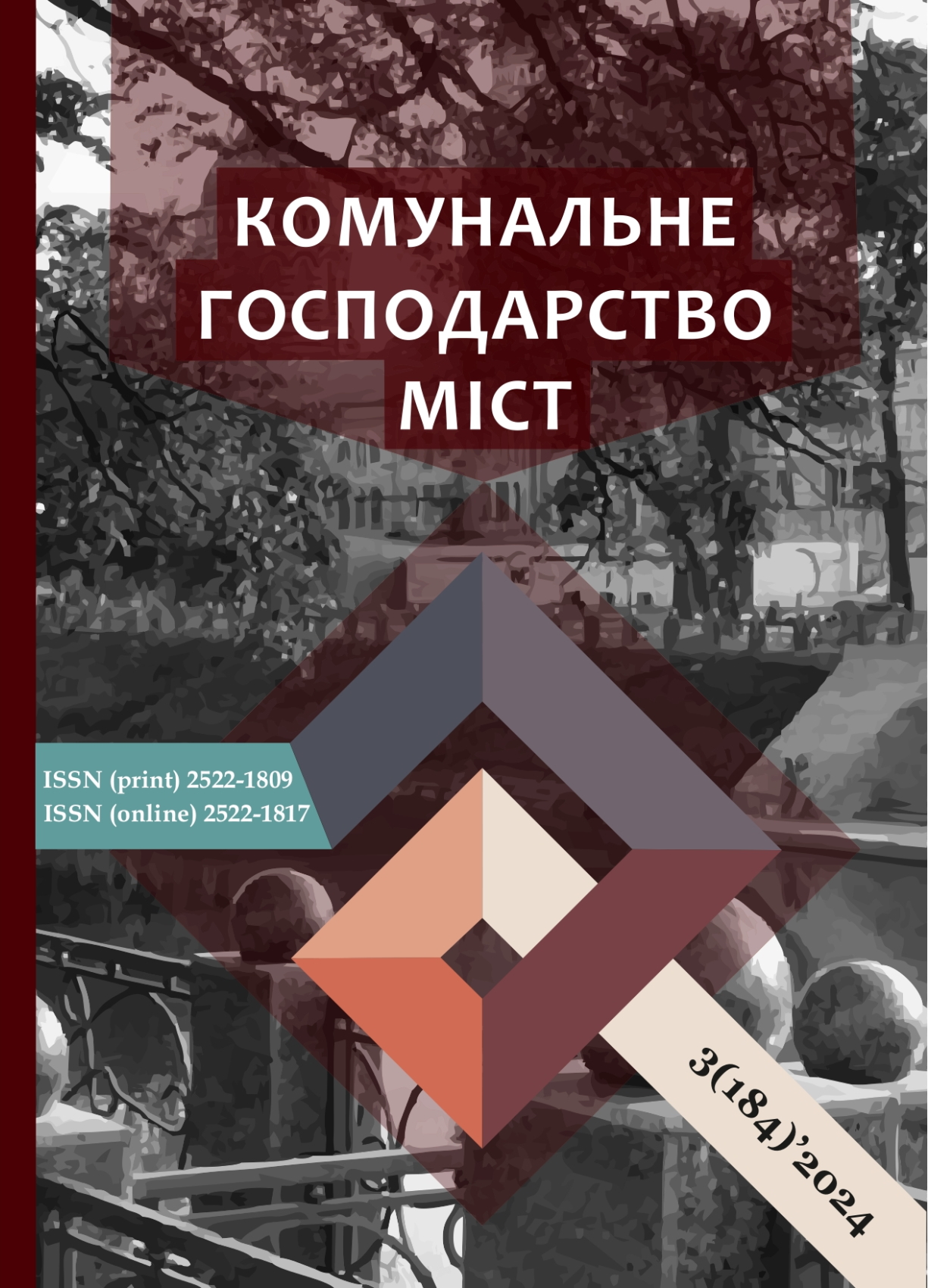METROLOGICAL CONTROL OF SENSORS FOR MONITORING WORKING CONDITIONS USING ARTIFICIAL INTELLIGENCE
DOI:
https://doi.org/10.33042/2522-1809-2024-3-184-216-222Keywords:
measuring instruments, production environment, hazards, inspection, calibrationAbstract
Metrological control plays a vital role in ensuring the accuracy and reliability of the data collected as part of the working conditions monitoring. It helps to prevent potential errors and guarantee the quality of the results, which is critical for the efficient assessment and management of occupational health and safety.
The article aims to investigate and analyse the role and importance of metrological control of sensors in the system for monitoring working conditions at production facilities using artificial intelligence. The article examines the possibilities of using artificial intelligence (AI) to optimise metrological control and analysis of sensor data. The authors provide specific applications of AI to improve the metrological control of sensors and identify the advantages and challenges of introducing AI into the metrological control system at production facilities. These tasks will help to reveal the essence and potential of using AI in the metrological control of sensors for monitoring working conditions and emphasise its significance in improving the safety of workers.
Using artificial intelligence to improve the accuracy of sensor measurements in monitoring working conditions helps to increase the efficiency and safety of production processes and reduce health risks for employees. The metrological control methodology is essential for ensuring the reliability of sensor and measuring device measurements. Applying machine learning algorithms to develop sensor calibration models can automate and optimise the processes of measuring working conditions, improving the accuracy and reliability of data.
The proposed flowchart demonstrates an innovative approach to calibrating a sound level meter using artificial intelligence (AI). The results show that integrating AI into the occupational health and safety management system contributes to monitoring process automation, predicting risks and hazards to employee health, and optimising safety processes. These approaches can enhance the production processes’ efficiency, safety, and productivity.
References
Krainiuk, O. Swot analysis of the implementation of digital technologies to ensure occupational safety / Krainiuk, O., Buts, Y., Barbachyn, V. // Municipal Economy of Cities, 2020. – 3(163). – РР. 234–238. DOI 10.33042/2522-1809-2021-3-163-234-238.
Sudianto, A. Smart Temperature Measurement System for Milling Process Application Based on MLX90614 Infrared Thermometer Sensor with Arduino [Text] / Sudianto, A., Jamaludin, Z., Abdul Rahman, A. A., Muharrom, F., Novianto, S.// Journal of Advanced Research in Applied Mechanics, 2020. 72(1), 10–24. DOI:10.37934/aram.72.1.1024.
MA, Liuhao, et al. Transfer-learning-based multi-wavelength laser sensor for high fidelity and real-time moni-toring of ambient temperature and humidity / Liuhao Ma, Weifan Hu, Wei Wang, and Yu Wang // Applied Optics, 2023. – 62.22. – P. 5932-5945. DOI:10.1364/AO.495482.
Pena F. López virtual instrument for automatic anemometer calibration with ANN based supervision / Pena, F. López; DURO, Richard J. A // IEEE Transactions on Instrumentation and Measurement, 2003. – 52.3. – P. 654-661. DOI: 10.1109/TIM.2003.814703.
Attallah Omneya An electronic nose for identifying multiple combustible/harmful gases and their concentration levels via artificial intelligence / Attallah Omneya, Morsi, Iman // Measurement, 2022. – 199. – 111458. DOI: 10.1016/J. Measurement.2022.111458.
Monti Lorenzo. Raveguard: A noise monitoring platform using low-end microphones and machine learning / Monti, L.; Vincenzi, M.; Mirri, S.; Pau, G.; Salomoni, P. // Sensors, 2020.– 20(19).– 5583. DOI: 10.3390/s20195583.
Barsagadea, Ajay G. Internet of Things Based Intelligent monitoring and Controlling of Poultry System on using Artifi-cial Intelligence / Barsagadea, Ajay G.; Rumaleb, Aniruddha S.// International Journal of Intelligent Systems and Applications in Engineering, 2024. 12.10s: 456-467. DOI: 10.1109/I-SMAC55078.2022.9987287
Pishgar Maryam REDECA: a novel framework to review artificial intelligence and its applications in occupational safety and health / Pishgar, Maryam, Salah Fuad Issa, Margaret Sietsema, Preethi Pratap and Houshang Darabi, // International journal of environmental research and public health, 2021.– 18.13.– 6705. DOI: 10.3390/ijerph18136705.
Kristoffersson, A., Lindén, M. Wearable sensors for moni-toring and preventing noncommunicable diseases: A systematic review. Information, 2020. 11(11), 521. DOI: 10.3390/INFO11110521
Rodríguez-Cobo. Non-Contact Thermal and Acoustic Sensors with Embedded Artificial Intelligence for Point-of-Care Diagnostics [Text] / Rodríguez-Cobo, L., Reyes-Gonzalez, L., Algorri, J. F., Díez-del-Valle Garzón, S., García-García, R., López-Higuera, J. M., Cobo, A.// Sensors, 2023. 24(1), 129. DOI: 10.3390/S24010129.
Krainiuk, O. Use of artificial intelligence for work safety management / Krainiuk, O., Buts, Y., Barbashyn, V., Yatsiuk, M. // Municipal Economy of Cities, 2023.– 6(180).– РР. 207–213. https://doi.org/10.33042/2522-1809-2023-6-180-207-213.
Krainiuk О. Metrological provision of workplace certification according to working conditions / Krainiuk О., Buts, Y., Didenko, N., Barbachyn, V. // Municipal Economy of Cities, 2023. – 4(178). – РР. 286–292. DOI: 10.33042/2522-1809-2023-4-178-286-292
Krainiuk, O. Prospects of digitalization in the field OF occupational health and safety / Krainiuk, O., Buts, Y., Bar-bachin, V., Didenko, N. // Array. Municipal Economy of Cities, 2020. – 6(159). – 130–138. DOI 10.33042/2522-1809-2020-6-159-130-138
Downloads
Published
How to Cite
Issue
Section
License
The authors who publish in this collection agree with the following terms:
• The authors reserve the right to authorship of their work and give the magazine the right to first publish this work under the terms of license CC BY-NC-ND 4.0 (with the Designation of Authorship - Non-Commercial - Without Derivatives 4.0 International), which allows others to freely distribute the published work with a mandatory reference to the authors of the original work and the first publication of the work in this magazine.
• Authors have the right to make independent extra-exclusive work agreements in the form in which they were published by this magazine (for example, posting work in an electronic repository of an institution or publishing as part of a monograph), provided that the link to the first publication of the work in this journal is maintained. .
• Journal policy allows and encourages the publication of manuscripts on the Internet (for example, in institutions' repositories or on personal websites), both before the publication of this manuscript and during its editorial work, as it contributes to the emergence of productive scientific discussion and positively affects the efficiency and dynamics of the citation of the published work (see The Effect of Open Access).

